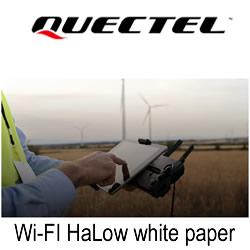Taranis and Albo Climate Announce Partnership to Deliver Satellite-Based Carbon Credits Verification
The companies will jointly develop AI-powered remote sensing technology for soil carbon verification in row crops.
Taranis and Albo Climate announce a partnership to alleviate the bottleneck in verifying carbon sequestration in farmland. By using satellite-based remote sensing to significantly reduce the cost of verification of Soil Organic Carbon (SOC), Taranis and Albo will allow agriculture retailers to scale carbon programs and help farmers move their carbon credits more easily into the carbon credit markets.
"We are excited to be partnering with Albo Climate. The high costs of measuring and verifying soil carbon credits have prevented more farmers from participating in carbon programs. Automatic and remote sensing of soil carbon would eliminate the farmer's need to take cumbersome soil sampling, allowing farmers to enter the carbon credit market and increase their ROI seamlessly," said Taranis President and Co-Founder, Ofir Schlam.
"Remote sensing can be game-changing in regenerative farming and the emerging agriculture-based carbon credits market. We are thrilled to be partnering with Taranis, a key leader in delivering digital farming solutions. Combined with our unique satellite and AI-powered approach to soil carbon credits measurement and verification, we see the potential for true impact at scale across the globe," says Jacques Amselem, CEO of Albo Climate.
While the initial AI-powered models will focus on corn and soy crops across the US corn-belt, the strategic partnership will foster the development of robust and scalable remote-sensing soil carbon models to be used in an array of croplands across several continents. In addition, the collaboration will produce maps to evaluate soil carbon density carefully and generate verified carbon offsets.
"Taranis can bring our satellite, drones, and AI expertise and vast network of agriculture retailers to the table to develop a faster and more affordable process for carbon verification," said Bar Veinstein, CEO of Taranis. "The key to unlock the carbon credit markets and have a significant impact on climate change is to bring cutting edge technologies to sustainable agriculture."
By employing, among others, no-till cultivation, utilizing cover crops and crop rotation, implementing planned grazing, and reducing the use of synthetic fertilizers and pesticides, regenerative methods keep carbon in the ground and allow it to build over time thus serving as a powerful "carbon sink." This carbon feeds and improves the health of plants in the soil where it is stored and kept from being released into the atmosphere.
By delivering a scalable, scientific approach to the Measurement, Reporting, and Verification (MRV) of soil carbon, Albo and Taranis will support a vast network of retailers and growers, prioritizing ease of use and global reach. In addition, helping agriculture retailers connect carbon offset buyers with carbon credit suppliers who are growers, will facilitate the entry of more farmers into the carbon credit market with less friction.
"We are putting farmers first on our new platform. To have a true impact on climate change, we need scalable execution and to have as many people on board in the effort as possible," says Ariella Charny, CMO of Albo Climate.
About Albo Climate:
Albo Climate, established in 2019, is an Israel-based startup applying AI to satellite imagery to map, measure, and monitor carbon sequestration and scale-up carbon removal. Combining geospatial monitoring and deep learning expertise, Albo is developing remote sensing solutions for carbon credit verification for various ecosystems, including forestry, agriculture, and blue carbon.
About Taranis:
Taranis is the world's leading AI-powered crop intelligence platform for agribusiness. It leverages AI and machine learning, high-resolution aerial, satellite, and drone imagery, and deep agronomic know-how to allow crop advisors to make better, more informed crop management decisions. Since starting in 2015, Taranis has worked with the world's top agricultural retailers and crop protection companies, monitoring millions of acres for customers in the United States, Canada, Brazil, Russia, Ukraine, and Australia. Taranis employs over 80 people worldwide and is headquartered in Westfield, Indiana.
Featured Product

How to overcome GNSS limitations with RTK correction services
Although GNSS offers ubiquitous coverage worldwide, its accuracy can be hindered in some situations - signals can be attenuated by heavy vegetation, for example, or obstructed by tall buildings in dense urban canyons. This results in signals being received indirectly or via the multipath effect, leading to inaccuracy, or even blocked entirely. Unimpeded GNSS positioning in all real world scenarios is therefore unrealistic - creating a need for supporting technologies, such as real time kinematic (RTK) positioning and dead reckoning, to enable centimeter-accuracy for newer mass-market IoT devices.
